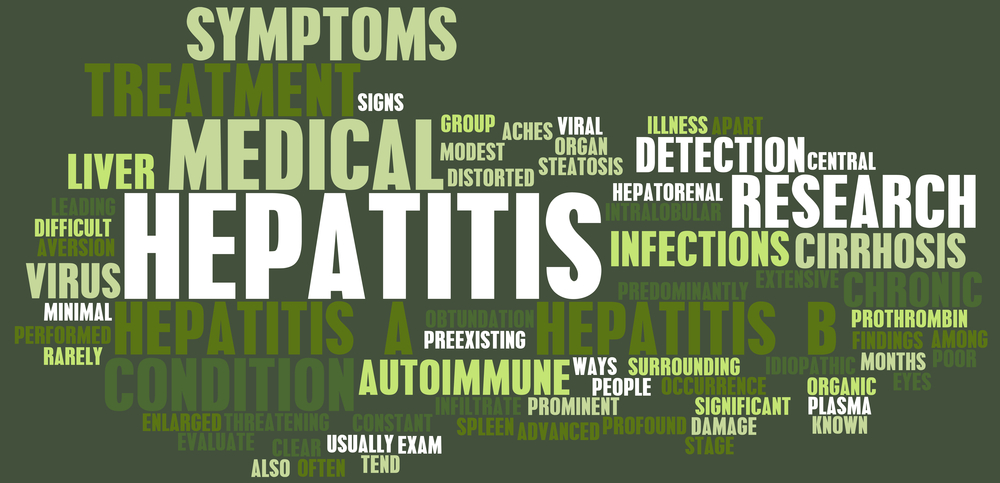Did you know that every year, viral hepatitis results in 1.5 million deaths all over the world?
That’s nearly as many deaths as caused by HIV/AIDS. A scary statistic, isn’t it? That’s because viral hepatitis is neglected for the most part. You will be shocked to learn that it is the 8th biggest killer in the world.28th July is celebrated as the World Hepatitis Day. The World Health Organization had announced this in 2010. There are just four official world disease-specific health days, World Hepatitis Day being one of them. This day is used to spread the word about viral hepatitis, raise awareness about the deadly disease, educate people about diagnosis and treatment facilities as well as preventive measures. Millions of people participate in this awareness-raising program on 28th July every year from all parts of the world.
For this year, WHO has announced the theme Viral Hepatitis: Think Again. Read it here first and make yourself and your loved ones aware of one of the most dangerous epidemics in the modern world.
Let’s learn a little about hepatitis.
What is hepatitis?
Hepatitis is usually a result of a viral infection that causes the liver to swell up. Hepatitis viruses can be of 5 types: A, B, C, D and E. These five types of Hepatitis virus are potential reasons for epidemics and kill millions of people and are of greatest concern. Hepatitis B and C most commonly lead to chronic diseases in people. Together, Hepatitis B and C can cause serious conditions such as liver cirrhosis and cancer.
Hepatitis A and E are generally a result of consumption of contaminated water or food. Hepatitis B, C and D are caused due to parenteral contact, as by intravenous or intramuscular injection, with infected body fluids. This means a healthy person could get Hepatitis by receiving contaminated blood or during surgical procedures where contaminated equipments are used. Hepatitis B could also occur because of transmission of the virus from mother to newborn, or by unsafe sexual contact.
Symptoms of Hepatitis infection include dark urine, nausea, tiredness, vomiting, abdominal pain and jaundice (characterized by the yellowing of eyes and skin). However, acute infection may not show any symptoms at all, or very limited symptoms at times.
Types of hepatitis viruses
There are 5 different types of hepatitis viruses: Hepatitis A, B, C, D and E. While all forms of hepatitis viruses cause liver inflammation, they differ from one another in a lot of ways.
Hepatitis A virus (HAV)
This type of Hepatitis virus is most commonly transmitted through ingestion of contaminated water or food. Poor sanitation is the leading cause of HAV infections. The virus is present in the infected person’s faeces. Certain forms of sexual contact can also be responsible for transmission of Hepatitis A virus. Although HAV infections are mostly mild, they can also be life threatening when severe. In cases of mild infection, patients recover fully and gain immunity from further Hepatitis A infections. Vaccines are available for effective prevention from Hepatitis A infections.
Hepatitis B virus (HBV)
This type of virus is spread via infected body fluids such as blood and semen. It can be transmitted from a mother to her newborn or from a family member to a kid in early childhood. Transfusion of blood or blood products contaminated with HBV can also cause transmission and so can the use of infected needles and injections during medical procedures.
Hepatitis C virus (HCV)
HCV is mostly also transmitted via close contact with infected blood. Blood transfusions are the most common cause of HCV. Use of infected needles and syringes can also transmit the virus. The risk of transmission through sexual contact is very small. In early stages, HCV may not show any symptoms besides mild illness, but it can be life threatening as it often leads to chronic liver disease.
Hepatitis D virus (HDV)
HDV infection cannot be contracted on its own and happen only in those people who are already infected with HBV. HDV and HBV infections together can result in a more chronic disease. There is no vaccine available for HDV but preventing HBV infection with vaccination can avoid HDV.
Hepatitis E virus (HEV)
Just like Hepatitis A, Hepatitis E virus is most commonly spread through contaminated water or food.Undercooked food, especially meat, and impure drinking water can cause this infection, as can poor hygiene and sanitation.
Prevention of Hepatitis
- Hepatitis A and hepatitis E go away without the need of a treatment and are mild, short-term infections that do not commonly show symptoms. Maintaining proper hygiene and sanitation as well as drinking clean water can keep this infection at bay. Good news is that once you have been infected with Hepatitis A or hepatitis E, you grow immune to it and can’t have it again.
- Getting vaccinated for hepatitis B is the main way to prevent yourself from infection. Hepatitis B and D can cause long term medical problems. Remember that it spreads by contact with body fluids, therefore, always be careful when you go for blood transfusion, or if you use a needle for any purpose. Make sure any injections and syringes are unused and never share them with anyone.
- Hepatitis C, the most dangerous form of type of viral hepatitis, is caused by HCV that spreads through blood-to-blood contact. While there is no vaccine to prevent Hepatitis C, preventive measures can save you from chronic diseases caused by HCV. Never share personal items such as razors and toothbrushes or syringes and needles.





